Doors have closed for the last time at superclub HQ Complex, formerly Bojangles, then Joplins and eventually the notorious Heaven
WHEN HQ Complex closed its doors on North Terrace for the final time last month, it was the end of an era for generations of Adelaide revellers who spent their youth at the iconic club destination.
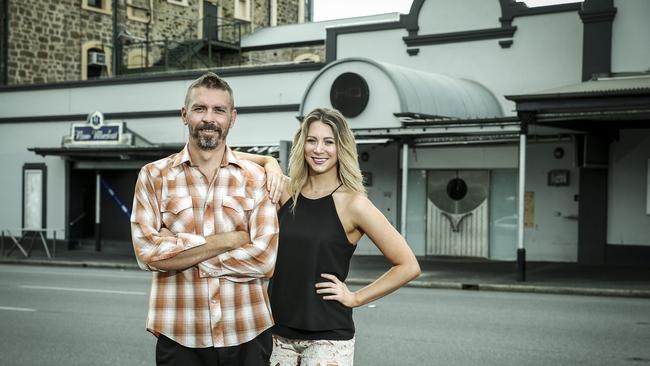
SA News
Don't miss out on the headlines from SA News. Followed categories will be added to My News.
- Super venue set to be Adelaide clubbers’ new HQ
- City nightclub HQ to be demolished for $200m apartment complex
- Super nightclub Q to revitalise Adelaide’s Hindley St
- Planet nightclub lawsuit to go ahead
WHEN HQ Complex closed its doors and said goodnight on North Terrace for the final time last month, it was the end of an era for generations of Adelaide revellers who spent their youth at the iconic club.
From humble beginnings some 40 years ago as Bojangles, then Joplins and eventually the notorious Heaven superclub which ruled Adelaide’s night-life in the mid-90s, HQ — as it has been known for a decade — has remained the number one party venue in town.
But now the music has stopped. Last weekend, club managers held a “farewell” garage sale and finally handed over its keys to new owners, with the building set to be demolished to make way for a $200 million, 24-storey residential and retail tower.
Stephen Rose, HQ general manager since its inception in 2006, said there were mixed emotions as the venue held its final club night on January 28.
“It really hit home the week after when I didn’t have anywhere to go. There was a wave of emotions from happy to sad, seeing people you haven’t seen for years who just wanted to enjoy the last few nights,” Mr Rose said.
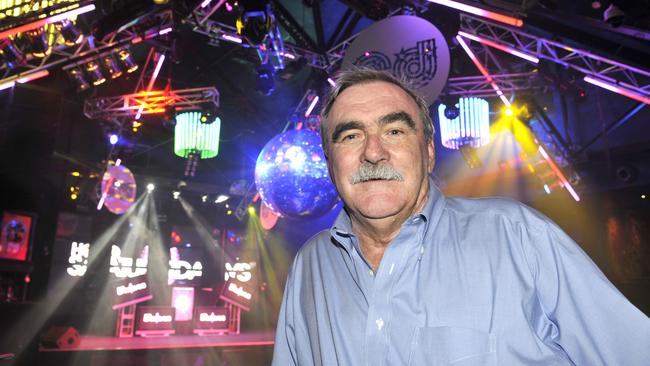
“There’s been many friendships and relationships formed here, I’m sure there’s been babies and weddings ... it’s been a long time. It’s been a privilege to be here, it’s such an iconic building.”
Before it was HQ, the venue was known as Heaven nightclub, opening its doors for the first time in January 1993 with artists including The Prodigy and Paul Oakenfold.
Daniel Michael, who used to DJ and promote Thursday nights at the venue in the 1990s, said the purpose-built superclub — an extension of Joplins which was in the adjoining Newmarket Hotel — was different from anywhere in Adelaide.
“We hadn’t seen anything like it around town, there was nothing of that scale in Adelaide before,” he said. “Even now, there’s a lot of well-designed club venues like Fat Controller and Electric Circus, but nothing like Heaven as it was back in the day.”
More than a thousand people would regularly pack the club on Wednesday and Thursday nights, with the line snaking around the block on a Saturday night, said Mr Michael, 43, who now runs Adelaide Fringe venue, Gluttony.
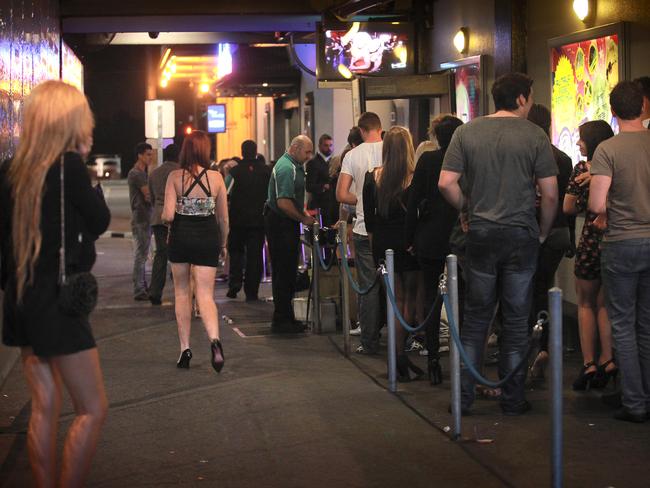
Damien Chase, aka DJ Dr Damage, first went to Heaven nightclub in the 90s as a young punter from the country before going on to work there as a DJ and a promoter during the 2000s.
“Back in the early Heaven days, all the Neighbours stars would come in ... guys like Bruce Samazan, Scott Michaelson ... it was crazy, 2500, 3000 people every night and there were no lockout laws, so you used to go til 7-8am in the morning. It was the pinnacle of Adelaide clubbing,” he said.
Alleged links with SA bikie gangs marred the club’s later years and the venue eventually shut in 2005, reopening in 2006 as HQ Complex, under the guidance of Mr Rose.
Mr Rose said there were many memorable nights over the years as big names such as Snoop Dogg, Coolio, Carl Cox, Will Sparks, Tiesto, Armand Van Helden, just to name a select few, performed inside the massive main room.
“There’s so many things I can’t say on the record,” Mr Rose laughed.
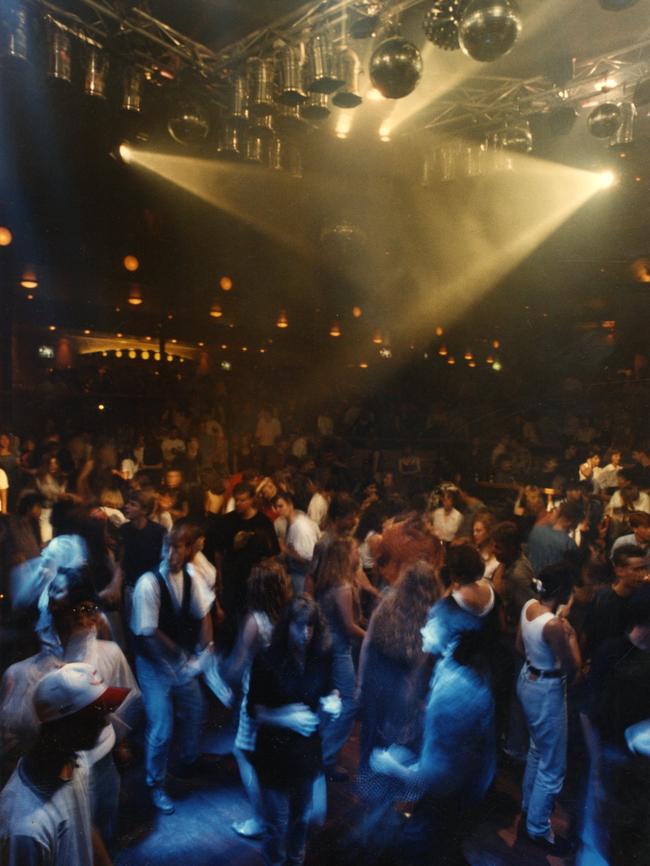
“I do remember the time, it was about a week after they brought in the no-smoking ban on stage, and (US hip-hop group) Cypress Hill refused not to not smoke and they did their whole performance smoking. That was interesting.”
Simon Lane, venue manager for the last four years, said he’ll never forget the night in 2014 when Eurodance chart-toppers Aqua and their lead singer Lene Nystrøm decided to cancel their performance at the last minute.
“She was completely messed up, she just couldn’t perform ... I don’t know what she was on ... there was almost a riot,” he said.
While the venue has closed its doors for the last time, HQ’s spirit will live on in an all-new superclub simply called Q, which will open on Hindley St in July.
The three-level club, located next door to the Crazy Horse Revue, will be the largest in Adelaide and will feature restaurants, bars, a coffee shop and function areas.
With a capacity of 2300 people, it’s set to revitalise the western end of Hindley St alongside the renovated Crazy Horse complex and cinemas.
Mr Rose, who will continue working at the new club, said he’s really excited to start afresh in Adelaide’s West End.
“We’re looking forward to getting back on to the party street, sometimes it was hard being here (on North Terrace) because everyone had to come to you. It’s going to be exciting, we can’t ask for much more,” he said.
GONE BUT NOT FORGOTTEN
TOUCAN
This club in Hindley St, which opened in the 1970s, was immortalised in the Models’ song “Two Cabs to the Toucan”.
MARTINI’S
The Marryatville Hotel was a favourite hangout with goths and scooter kids in the 1980s.
LE ROX
Originally an alternative music venue, the Light Square club made a name for itself in the late ’80s and early ’90s as the “techno centre” of Australia, with many comparisons to The Haçienda in Manchester.
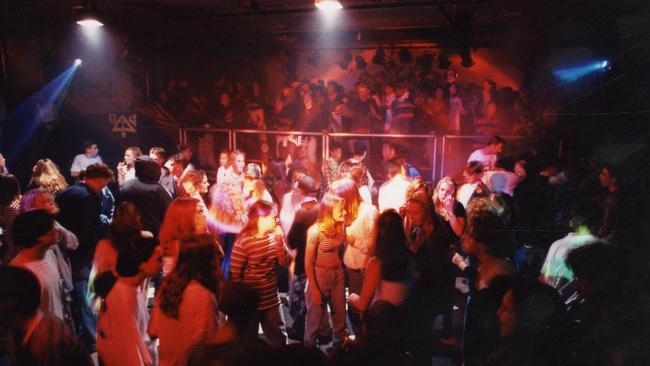
LENNIES TAVERN
Eighties’ licensing laws meant Sunday night patrons had to be served dinner on arrival — usually cold meats and coleslaw — which most quickly discarded.
JULES
In its heyday in the ‘70s and ‘80s, the Hindley St club was famous for its revolving dance floor. It’s now The Woolshed on Hindley, which has a mechanical bull.
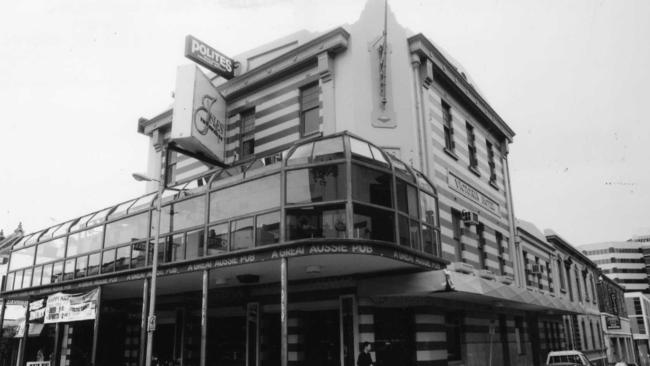
PLANET
Heaven’s biggest competitor at one point in the ’90s, the Pirie St venue’s ownership is now being disputed in court.
MCMAHONS
The Tonsley Hotel nightclub and its cheap drinks were popular with the university crowd on Thursday nights in the 1990s.
FIESTA VILLA
Compered by the late radio personality John Vincent, the Findon Hotel dance night began in 1967 and ran for about 20 years.
BAY DISCO
The Glenelg Football Club was the place to be on a Sunday night in the late ‘70s and ‘80s. Special liquor licencing laws meant it could stay open later than pubs.
SYNAGOGUE
Off Rundle St, and now known as Apple, this ‘90s nightclub, was where internationally-acclaimed DJ Simon Lewicki aka Groove Terminator got his start.



